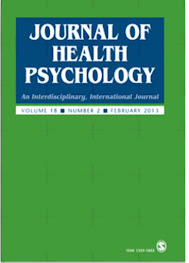A parallel set of arguments has been offered in our understanding of human health and illness. Among the foremost contributors here has been Ad Kaptain, a medical psychologist at Leiden University Medical Centre in Belgium. Some of his articles are listed below.
Among Kaptein’s interests is in how people experience being ill. One of his ideas is that empathy from doctors and nursing staff can have a beneficial effect on the wellbeing and recovery of patients. Kaptein is convinced that literature can help to improve empathy in those working in healthcare.
One of the works that Kaptain discusses in an article that he published in 2022, in the Journal of Health Psychology, is Margaret Edson’s Wit: “the Pulitzer prize winning novel/play about coping with ovarian cancer and the associated struggle between patient and health care providers” (p. 1618). Another work that he discusses is Thomas Bernhard’s The Breath, from which he quotes this: “ … but it was impossible to speak to them …The doctors on the ward-round never did anything to enlighten their patients in the death ward, and in consequence all three patients were effectively abandoned, both medically and morally.” Then comes the following: “Every day they appeared in front of my bed, a white wall of unconcern in which no trace of humanity was discernable” (p. 1619).
Kaptain refers to the work of our research group, in which we have found that engaging with fiction can enable people to increase their empathy (see e.g. Mar 2018). Perhaps “people” might include health care providers of the kind that are referred to in works such as Edson’s Wit and Bernhard’s The Breath.
Kaptein A. A. et al. (2018) Start making sense: Art informing health psychology. Health Psychology Open 5: 1–13.
Kaptein A. A. et al. (2020) Heart in Art: cardiovascular diseases in novels, films, and paintings. Philosophy, Ethics, and Humanities in Medicine 15: 2.
Kaptain, A. A. (2022). Novels as data: Health humanities and health psychology. Journal of Health Psychology, 27, 1615-1625.
Mar, R. A. (2018). Evaluating whether stories can promote social cognition: Introducing the Social Processes and Content Entrained by Narrative (SPaCEN) framework. Discourse Processes, 5/6, 454–479.

No comments:
Post a Comment